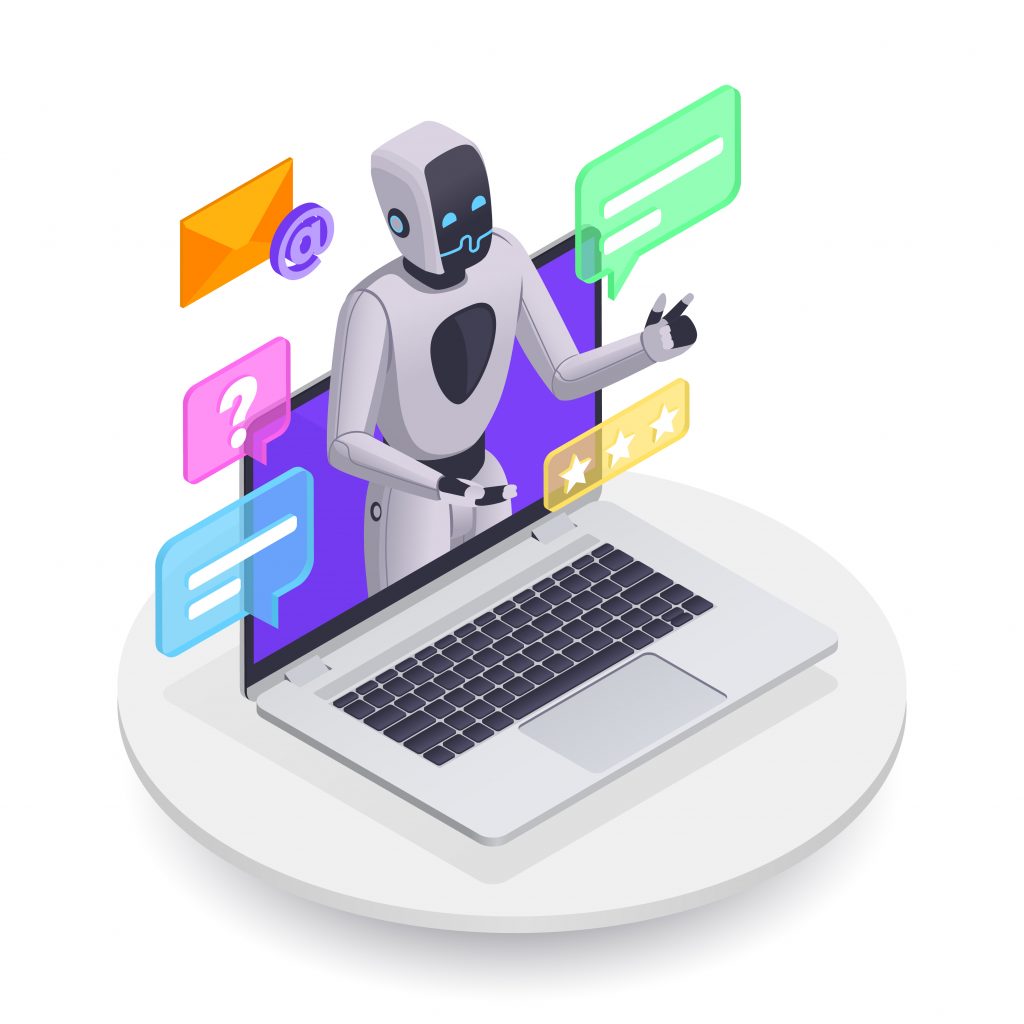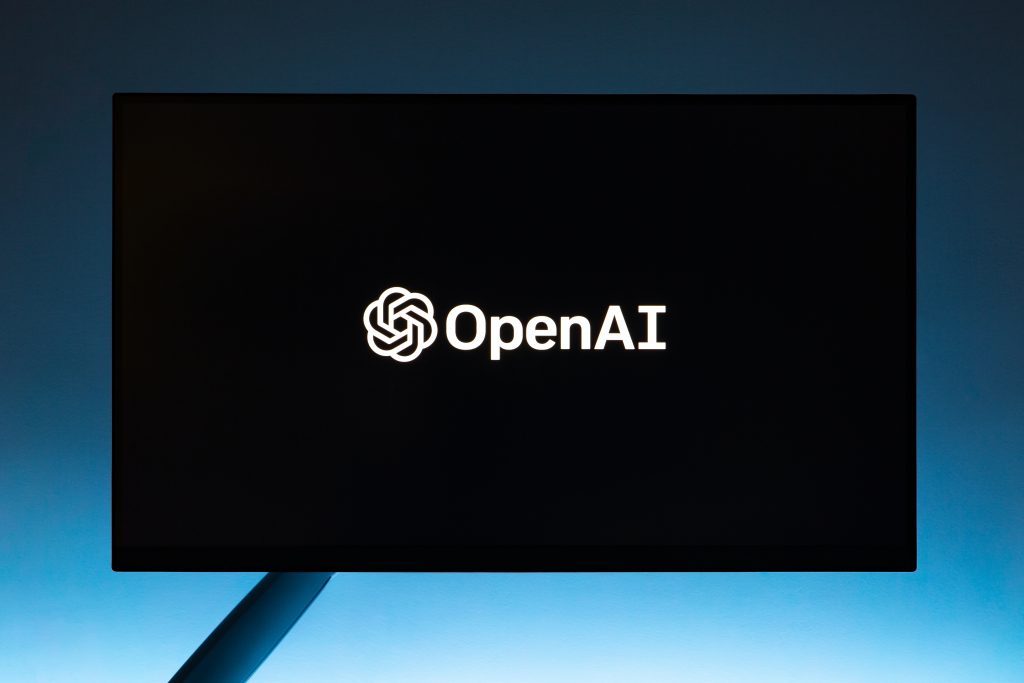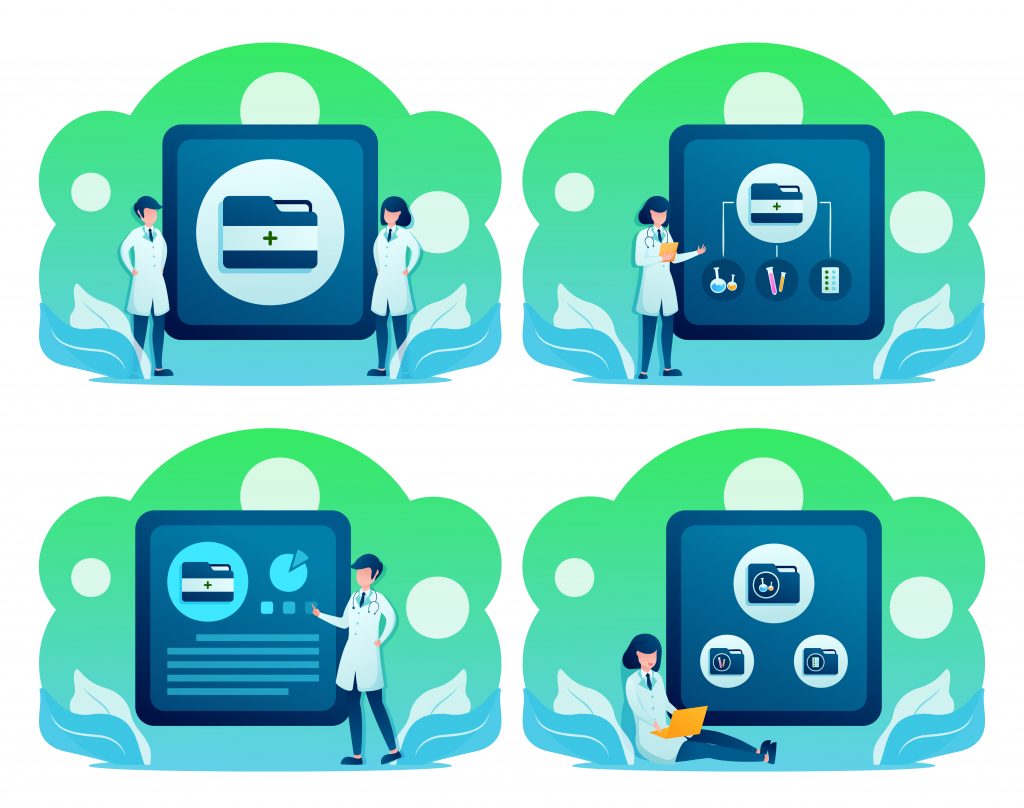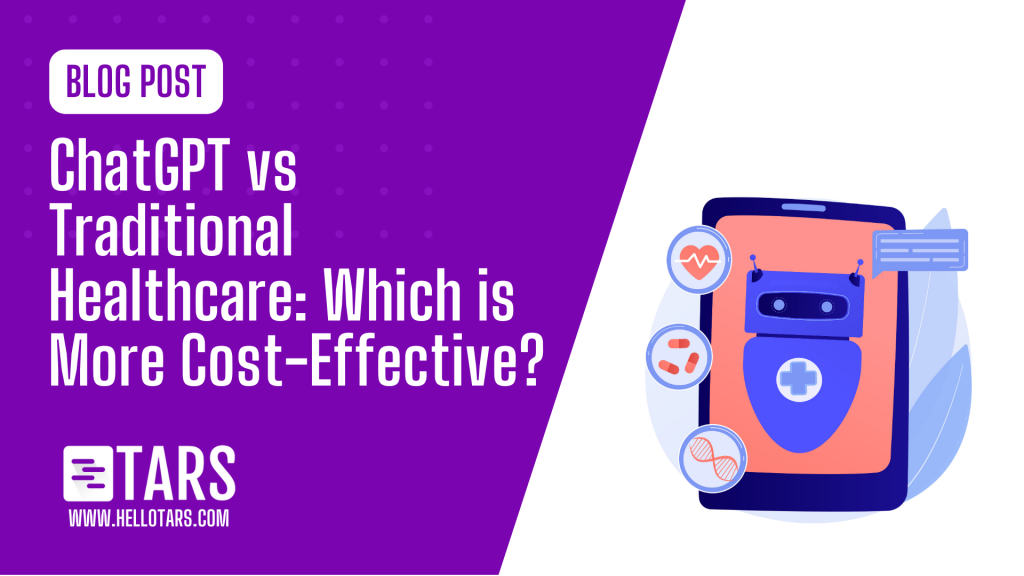Confused whether ChatGPT is the right choice for your healthcare business? We are here to help.
As we all know, healthcare costs are steadily rising making it increasingly difficult for patients to access the care they need. As a result, healthcare providers are constantly looking for ways to reduce costs without compromising the quality of care. One solution that has gained popularity in recent years is the use of healthcare chatbots.
You can use ChatGPT to build such a healthcare chatbot. It uses the GPT-3.5 architecture developed by OpenAI to provide more accurate and detailed responses to patients. It is able to understand natural language input, making it easier for patients to interact with the system.

In this blog, we will compare the cost-effectiveness of ChatGPT with traditional healthcare systems. We will explore what healthcare chatbots are, the use of ChatGPT in medicine, how ChatGPT impacts healthcare, and why chatbots are important in healthcare.
What are healthcare chatbots? How can they help?
Healthcare chatbots are computer programs designed to simulate conversation with human users, using artificial intelligence to provide assistance with a range of healthcare-related tasks.
They are artificial intelligence systems that can interact with patients through text or voice messages to answer their queries, provide medical advice, or even diagnose symptoms.
With the use of machine learning algorithms, chatbots can learn from the interactions they have with patients and improve their responses over time.
Here are a few ways in which chatbots can help your healthcare business:
✅Personalized care:
Chatbots can provide personalized care by asking a series of questions to gather information about a patient’s symptoms and medical history.
Based on this information, chatbots can provide tailored recommendations or direct patients to the appropriate healthcare provider.
✅Available 24/7:
Chatbots are available 24/7, making them a convenient and accessible option for patients who require medical advice or assistance outside of regular office hours.
✅Reduces Burden on healthcare staff:
Chatbots can reduce the burden on healthcare staff, particularly in areas with high patient volumes.
✅Frees up resources:
By providing basic medical advice and assistance, chatbots can help reduce the number of unnecessary visits to healthcare facilities, freeing up resources for patients who require more urgent care.
✅Cost-effective:
Chatbots can help you cut down on manual labor costs while helping you provide more efficient care and service to your patients.
How can ChatGPT-powered chatbots help the healthcare industry?

Chatbots like ChatGPT have the potential to transform the healthcare industry by providing a more cost-effective and accessible option for patients in need of medical advice and assistance.
🎯ChatGPT uses the GPT-3.5 architecture developed by OpenAI to provide more accurate and detailed responses to patients.
By using the GPT-3.5 architecture developed by OpenAI, ChatGPT is able to understand natural language input and provide more accurate and detailed responses to patient questions. This means that patients can receive the same level of care and support as they would from a human healthcare provider, but at a fraction of the cost.
🎯ChatGPT is also able to provide patients with immediate access to medical advice and assistance.
This can be particularly valuable in emergency situations, where patients may not have the time to wait for an appointment with a healthcare provider.
🎯ChatGPT is used in medicine to provide medical advice, answer patient questions, and even diagnose symptoms.
As an advanced language model, ChatGPT can be used in the medical field to provide a range of services including medical advice, answering patient questions, and even diagnosing symptoms.
ChatGPT’s vast knowledge base allows it to provide patients with accurate and reliable medical advice based on their symptoms, medical history, and other relevant factors. It can also answer questions related to medications, treatments, and general health concerns.
Moreover, ChatGPT can assist in the diagnosis of medical conditions by analyzing a patient’s symptoms and providing a list of possible conditions that match those symptoms.

In conclusion, in the battle of traditional healthcare systems vs ChatGPT, ChatGPT definitely emerges as the more cost-effective option. While patients in highly critical conditions may benefit from traditional tools and methods, chatbots are far more efficient when it comes to accessibility and convenience.
By assessing your business needs properly and finding the right balance between modern and traditional tools, you can dramatically cut down on business costs while simultaneously enhancing patient satisfaction.
We can understand that finding the most cost-effective solution that matches your needs can be quite confusing at times. Which is why we are here to help.
Let us help you discover the benefits of ChatGPT for your business.
Are you wondering whether a healthcare chatbot would be beneficial for your business? All you need to do is book a free demo and our in-house experts will personally resolve your queries and help you find the right solution.

I am a creative thinker and content creator who is passionate about the art of expression. I have dabbled in multiple types of content creation which has helped me explore my skills and interests. In my free time, I indulge in watching animal documentaries, trying out various cuisines, and scribbling my own thoughts. I have always had a keen interest in blogging and have two published blog accounts spanning a variety of articles.

0 Comments on "ChatGPT vs Traditional Healthcare: Which is More Cost-Effective?"